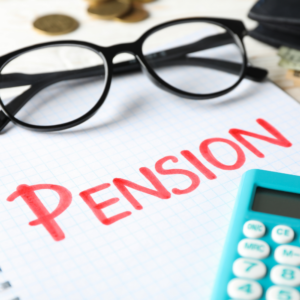
Working for either the same or multiple companies over the years, makes it hard to know your pension worth.
Many people lose track or even forget about some of their pensions. Nevertheless, for a well-planned retirement it’s important to find out the value of all your schemes. Even if you are unsure whether you had one with a certain company you worked for, it doesn’t hurt finding out.
Planning for the future is always easier when knowing how much you currently have. As well as the various ways you can grow your pension’s worth to enjoy retirement as one should!
Finding out your pension worth:
If you have lost track of the various pensions you possess, there are many ways to check your pensions’ worth.
These methods vary depending on your provider:
- Some providers offer the facility of tracking your annuity online.
- Some should supply you with a yearly pension statement.
- If you’re approaching retirement, providers’ are meant to supply a ‘wake-up’ pack. It contains all the pension details of an individual, which should be delivered between 4 to 6 months before retirement (however, this does not give you much time to plan).
If you do not have access to any of the above options, the next step is to contact your provider. Supposing that you have multiple pensions, you will need to contact each provider individually. If you do not know who your providers are, you can always find a lost pension if they are UK-based.
The government along with other partners are working on the pension dashboard project. It will allow individuals to find their pensions’ worth and their provider contact details instantly. It is predicted to be accessible online from 2019. Once people have access to this platform, it will be easier for a person to assess their current situation and begin planning for the future.
Types of Pension Schemes:
Once you know what pensions you have, their value and who your providers are, it is helpful to know which type of pension it is.
There three most common types of pension schemes are:
Occupational Scheme:
- This is a company pension.
- There are two main pension plans within this scheme known as:
- Defined Benefit: Your employer contributes towards your pension pot
- Defined Contribution: Both you and your employer contribute towards your pension pot.
- Accessibility: At the age of 60 (typically). However, this varies depending on the provider.
- Withdrawal: Have the option to withdrawal 25% of your pension tax-free (in the UK) and then commence annuity (monthly/annually income, taxed as earned income).
- Upon death: Your partner receives 50% of your income for the rest of his/her life, recognized as ‘widow benefit’.
Personal Scheme:
- This is a personal pension. It is set-up and invested by an individual.
- Otherwise known as Personal Pension (PP) or Self-Invested Personal Pension (SIPP).
- Accessibility: At the age of 55.
- Withdrawal: Have the option to withdrawal 25% of your pension tax-free and regular amounts as you wish.
- Upon death: Your pension will be handed over to your estate. This means that once your partner passes away, your pension will go to whoever you nominate as your beneficiary.
State Pension:
- This is a government pension.
- The value varies depending on how many years you have worked in the UK for (minimum of 10 years contribution to national insurance).
- An estimate can be calculated online.
- Accessibility: Upon retirement.
- Withdrawal: You receive either monthly/annually income.
- Upon death: Your partner/family do not receive any of your pension.
Funding your retirement:
To avoid underfunding in retirement, it is imperative to plan if you will have enough income to cover your costs and live the life you deserve. To do so, you must find out the total income you will receive from all your pension pots, this includes your State Pension. As well as how much tax you will pay on that income and estimate your living costs.
If you believe your funds are insufficient, the best solution is to postpone retirement and increase your pension worth by investing more into it and retiring later. Another option could be to invest your pension now, to ensure your funds are growing until you wish to retire.
Transferring from an Occupational to a Personal scheme:
If you want to control the investment of your pension, there is the possibility of transferring from an occupational to a personal scheme. This is only possible if you are no longer paying into your occupational pension. Moreover, you can choose how your pension is invested whilst you are still saving for retirement.
Another benefit of transferring is that you can have access to 100% of your pension fund.
Most importantly, in a personal pension you will have greater control and benefit from flexi-access withdrawals. In other words, you will be able to withdrawal from your pension whenever you wish to do so (and pay the relevant levels of tax).
If you have various pension pots, there is a possibility of combining all of them into one pension scheme for easier management.
Furthermore, the funds remaining in your pension upon death will pass to your estate, meaning your family will benefit from your pension as well.
What can Harrison Brook do for you?
We are fully qualified financial advisers that specialise in providing expat financial advice.
If you currently possess an Occupational Pension Scheme, we can assist you with:
- Tracing your pension(s) and identifying their value(s).
- Calculate an estimate of your retirement income.
- Transfer your UK pension to a personal pension scheme.
- Combine your pension pots into a single plan.
- Provide you with flexi-access and regular pension withdrawals.
If you already hold a Personal Pension Scheme and are living overseas, we can:
- Transfer your scheme to an International Self-Invested Personal Pension (SIPP) or QROPS if you live in Europe.
- Provide you with financial advice. Usually, once you move outside of the UK, your current financial adviser will no longer be able to provide you with financial advice.
If you wish to invest your plan, we can:
- Advise the most tax-efficient way to invest your pension.
- Identify the right level of risk for your investment. By using Dynamic Planner questionnaire, the number one Risk Profiler in the UK.
- Combine your pension pots all in one plan for easy management
- Nominate your beneficiaries, to assure your pension will go to whom you wish.
What makes us different:
- Harrison Brook are fee-based advisers rather than commission-based and our fees are fully transparent.
- We provide our services globally. No matter where you are or move to, outside of the UK, we can carry on assisting you.
- Harrison Brook will continue to manage your pension and ensure it is invested effectively.
- We will present you with quarterly reviews to continuously update you with your pension status.
- Harrison Brook offer honest-impartial advice.
- We have a 5-star rating on Feefo, reflecting our success with our existing satisfied clients.
If you are interested in any of our services or wish to speak to an adviser, get in touch and benefit from a first free-consultation.
The information contained herein is for informational purposes only which is subject to change and should not be relied upon. You should seek advice from a professional adviser before embarking on any financial planning activity.


